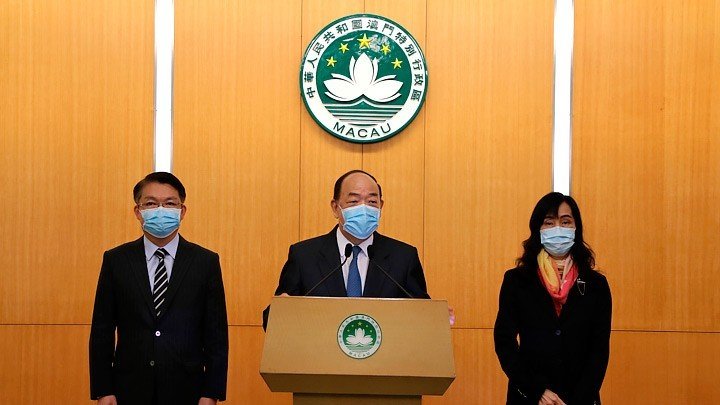Macau casinos to close for at least two weeks following 10th confirmed coronavirus case

Casinos in Macau, the Chinese territory that’s the world’s biggest gambling hub, will close for 15 days as China tries to contain the spread of the deadly coronavirus.
The decision to suspend casino operations from Wednesday, Feb. 5, is the latest blow to the gambling mecca, which is struggling to recover from the worst annual revenue decline since 2015. It would be the longest-ever halt and only the second such instance, after a typhoon in 2018 forced a 33-hour shutdown. So far, Macau has confirmed at least 10 cases of the virus that originated from Wuhan city in central China, Bloomberg reports. Seven of them have been imported and three are local.
The two-week shutdown could result in gross gaming revenue in the first quarter to decline by 50% from year ago, according to a Feb. 4 note by Sanford C Bernstein. If casinos were to remain closed for the rest of the quarter, gaming revenue would show a year-on-year decline of over 70%.
Macau will discuss suspension measures with the casino sector Tuesday afternoon and announce precise timings soon after, Macau Chief Executive Ho Iat-seng said at a briefing. He said that the decision was made after an expert review, as the ninth confirmed patient was discovered to have worked in the gambling industry, CNN reports. He also warned the closures could be extended for a period of months if the virus continued to spread. “This is a difficult decision but we have to do it, for the health of our Macau residents,” he told reporters. He added that the city would be able to afford the economic cost.
Iat-seng, who wore a face mask for his news conference, added that he had no plans yet to close the border with mainland China but would consider shutting certain checkpoints, a step neighbouring Hong Kong has taken.
“This is indeed an extreme measure. It is unlikely for casino operators to pass all this burden to staff, so they may bear all the fixed costs and expenses,” said Angela Han Lee, equity analyst with China Renaissance Securities HK. “Near-term profit might fall into the negative territory.”
The move will be a major setback for the gambling enclave that reported the fourth straight month of revenue fall as China imposed travel curbs. It’s coming after a dismal year weighed down by the trade war, Hong Kong protests and slowing Chinese economy. The SARS-like virus has killed more than 425 people and infected over 20,000 in China, forcing companies to shut locations or ask local staff to work from home.
The closing of casinos comes as the entire region has been nearly shut off to travel, depriving the gambling center access to its biggest customers. Nearby Hong Kong has restricted transportation from the mainland, while Beijing has stopped issuing visas for individual travel to both Hong Kong and Macau. That cut off tourists and wealth gamblers from the mainland for Macau that derives 80% of its annual revenue from gambling.
The Bloomberg Intelligence index of Macau operators fell as much as 3.7% Tuesday on the news before paring losses. Every stock in the gauge declined, with MGM China Holdings Ltd. and Galaxy Entertainment Group Ltd. being the worst performers. All six casino operators have promised not to force unpaid leave on their employees, according to a statement from the Macau government.
“Due to the travel restrictions in place, virus concerns and no more visas issued under the individual visitation scheme, we expect the Gross Gaming Revenue to likely stay weak near term,” analysts at Credit Suisse led by Kenneth Wong said in a Feb. 4 note. “The suspension will drag the sector performance for a longer period, in our view.”
The looming shutdown is coming soon after the Lunar New Year holiday which saw a steep decline in the number of visitors. The festive period, when millions of Chinese travel and shop, typically gives a big boost to the casino revenue on the influx of tourists in Macau. Visitor arrivals to Macau from mainland China have plunged 83.3% during this year’s Lunar New Year holiday, according to data from Macau Government Tourist Office. Some 35 million people visited the densely crowded city of just 631,000 people last year, the vast majority mainland Chinese heading to the casinos, which rake in each week what Las Vegas takes in a month.
Also, the halt on operations can extend beyond two weeks and hurt casinos operators even more, according to Andrew Chung, regional head of gaming research at Daiwa Capital Markets Hong Kong. “The question really is what sort of conditions will the Macau Government need to see in order to lift the suspension,” said Chung. “We believe the market has not priced in the risk and uncertainty of further suspensions.”
















































